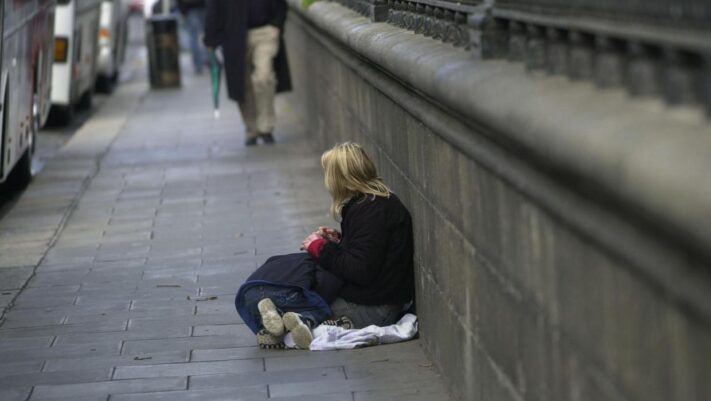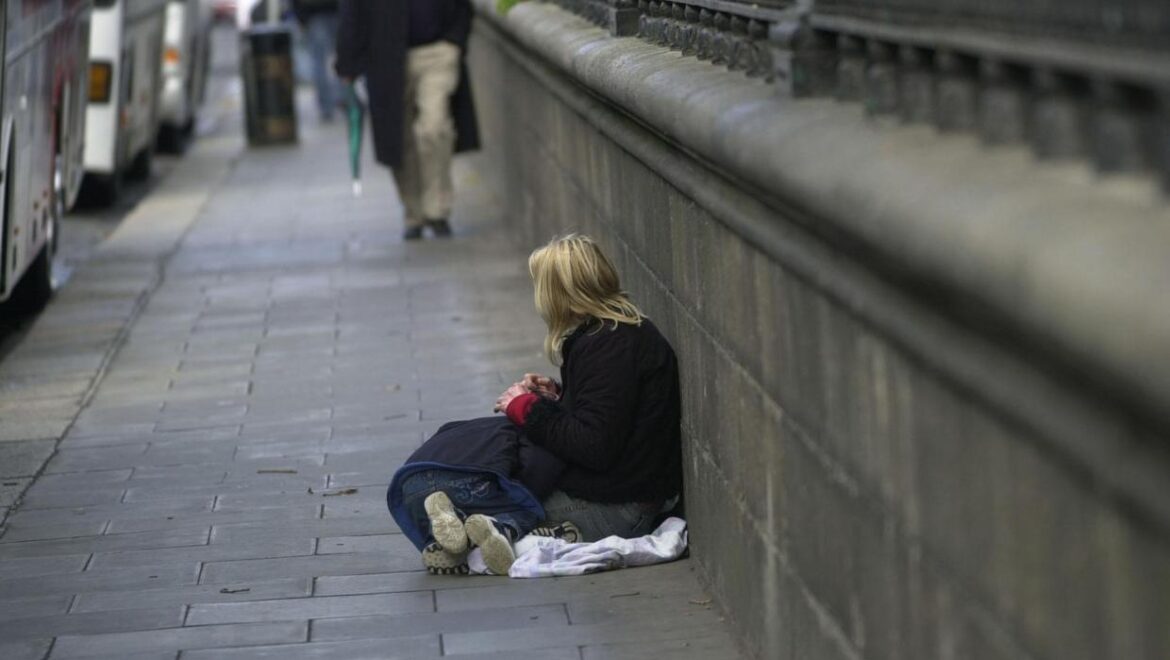 ALMOST 110,000 people in the Derry City and Strabane District Council area are living in poverty, according to a report into welfare benefits.
ALMOST 110,000 people in the Derry City and Strabane District Council area are living in poverty, according to a report into welfare benefits.
An estimated 400,000 people in the North of Ireland are said to be living below the breadline, says research from welfare advice workers.
And 27% of them – 108,000 – live in the Derry City and Strabane District Council area.
Rónán Moyne, who is the deputy manager of Advice North West, the largest advice provider in the DCSDC district, said government was failing those struggling to survive on welfare payments.
“We deal with in excess of 25,000 enquiries each year, the vast majority of these are from citizens seeking help and support with welfare benefit-related issues,” he said.
“Economic inequality is causing people in our area to die younger.
“We consistently see those with the least power in society struggle to access essential basic income via the social security system.
“Government is failing to provide a welfare state system that can provide a decent standard of living and dignity to its people.”
The survey was carried out by the human rights network Participation and the Practice of Rights (PPR), and The Right to Work: Right to Welfare campaign as part of ongoing monitoring of the Department for Communities’ compliance with international human rights obligations.
It found some 98% of people claiming Universal Credit here don’t fully understand the application process, according to research from welfare advice workers.
Almost 200 were asked to provide their assessment of the support provided by the Department for Communities and private contractors during social security decision-making processes across all benefits.
It is believed that, overall, 80% of claimants did not fully understand the nature of the assessment process for all social security payments, including Personal Independence Payment (PIP) and Disability Living Allowance (DLA) benefits.
One worker said that a woman they helped with an application seemed “to have undiagnosed learning difficulties, most likely due to her age group”.
They added that she didn’t know the process at all, and “made a new claim for PIP, but has stated she will not have the heating on at all now with only cold water”.
 Further findings revealed that advice workers thought 75% of claimants they helped would be denied the minimum level of benefits required to access food, housing and healthcare.
Further findings revealed that advice workers thought 75% of claimants they helped would be denied the minimum level of benefits required to access food, housing and healthcare.
Eleven in every 20 claimants were not able to access professional advice and representation at each stage of the social security assessment process.
Some 83% were not informed by the Department for Communities about the criteria used to assess their eligibility for the benefit they applied for, according to the report.
Seán MacBradaigh from PPR hopes that the Minister for Communities Deirdre Hargey uses her power to take local action to protect human rights without permission from Westminster.
“We hope the minister takes the time to read the report and the harrowing testimony of these front line advice workers who have been stretching themselves to the limit during the pandemic in support of the most vulnerable in our society,” he said.
“Minister Hargey and her officials were invited to participate in this survey — to give their honest assessment of the state of decision making. The offer was not taken up.
“We have written to Minister Hargey seeking an urgent meeting to discuss the report and the recommendations which are within her power to deliver.
“A solution is already on the table in the form of the #PeoplesProposal, a human rights checklist which Minister Hargey has already endorsed in her previous role as Lord Mayor Of Belfast.”
Last week it was reported that Ms Hargey has signed a joint letter with her counterparts in Scotland and Wales calling on the UK Government to scrap plans to axe the £20 increase to Universal Credit and instead make the higher rate of payment permanent.
The letter to to Work and Pensions Secretary Therese Coffey states that local claimants would lose £55.5m in this financial year alone.
Tags:





